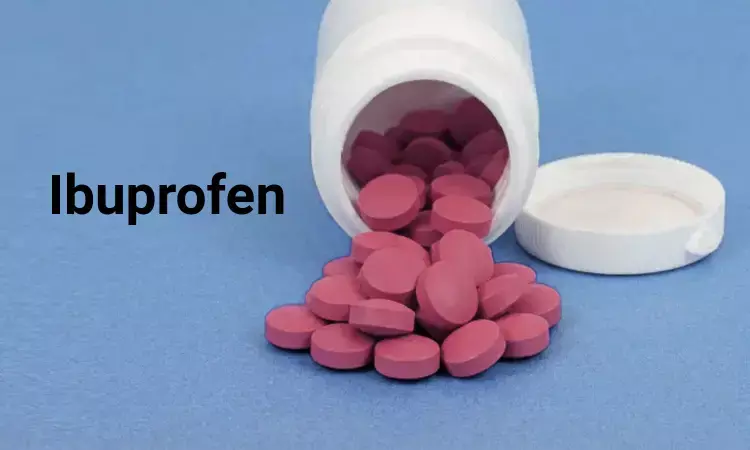- Home
- Medical news & Guidelines
- Anesthesiology
- Cardiology and CTVS
- Critical Care
- Dentistry
- Dermatology
- Diabetes and Endocrinology
- ENT
- Gastroenterology
- Medicine
- Nephrology
- Neurology
- Obstretics-Gynaecology
- Oncology
- Ophthalmology
- Orthopaedics
- Pediatrics-Neonatology
- Psychiatry
- Pulmonology
- Radiology
- Surgery
- Urology
- Laboratory Medicine
- Diet
- Nursing
- Paramedical
- Physiotherapy
- Health news
- Fact Check
- Bone Health Fact Check
- Brain Health Fact Check
- Cancer Related Fact Check
- Child Care Fact Check
- Dental and oral health fact check
- Diabetes and metabolic health fact check
- Diet and Nutrition Fact Check
- Eye and ENT Care Fact Check
- Fitness fact check
- Gut health fact check
- Heart health fact check
- Kidney health fact check
- Medical education fact check
- Men's health fact check
- Respiratory fact check
- Skin and hair care fact check
- Vaccine and Immunization fact check
- Women's health fact check
- AYUSH
- State News
- Andaman and Nicobar Islands
- Andhra Pradesh
- Arunachal Pradesh
- Assam
- Bihar
- Chandigarh
- Chattisgarh
- Dadra and Nagar Haveli
- Daman and Diu
- Delhi
- Goa
- Gujarat
- Haryana
- Himachal Pradesh
- Jammu & Kashmir
- Jharkhand
- Karnataka
- Kerala
- Ladakh
- Lakshadweep
- Madhya Pradesh
- Maharashtra
- Manipur
- Meghalaya
- Mizoram
- Nagaland
- Odisha
- Puducherry
- Punjab
- Rajasthan
- Sikkim
- Tamil Nadu
- Telangana
- Tripura
- Uttar Pradesh
- Uttrakhand
- West Bengal
- Medical Education
- Industry
Ibuprofen safe for use in children with G6PD deficiency new study shows

(Philadelphia, PA) -
Ibuprofen very rarely causes hemolytic anemia in children with G6PD deficiency, finds a recent literature review by researchers at the Lewis Katz School of Medicine at Temple University. Hence Ibuprofen, commonly used for pain relief in pediatric medicine should be removed from the list of suspected hemolysis-inducing drugs in G6PD-deficient children
Red blood cells in the human body are continuously subjected to oxidative stress, in which highly reactive molecules damage cellular components. Blood cells have a mechanism in place to deal with this stress, an enzyme called glucose-6-phosphate dehydrogenase (G6PD). But in about 400 million people worldwide, G6PD is deficient, leaving blood cells vulnerable to oxidation and a destructive process known as hemolysis, which can result in severe, potentially life-threatening anemia.
Infection is the most common cause of hemolysis in G6PD-deficient individuals, but certain foods and medications may precipitate the destruction of blood cells, especially in children.
"Our finding, that ibuprofen can be used safely in children with G6PD deficiency, is important, particularly because of the significant role that ibuprofen has in pediatric pain and fever management," explained Glenn Isaacson, MD, FAAP, Professor of Otolaryngology – Head & Neck Surgery and Pediatrics at the Lewis Katz School of Medicine, Director of Pediatric Otolaryngology at Temple University Hospital, and senior investigator on the new study.
The review was published online in the journal The Laryngoscope.
G6PD deficiency is the most commonly occurring defect in red blood cells. It is notably widespread in countries in Africa, the Mediterranean, the Middle East, and Southeast Asia. In the United States alone, about 11 percent of males of African descent are affected by G6PD deficiency. Affected adults rarely show symptoms, but for newborns and young children, infections or exposure to medications can induce severe anemia and hyperbilirubinemia (excess bilirubin in the blood) and, in rare instances, can cause death.
"For many medications thought to increase risk of hemolysis in G6PD-deficient patients, there actually is very little evidence to support an association," Dr. Isaacson explained. "Ibuprofen is a key alternative to opioid pain medicines, so it is important to know if it can be used safely in children who lack G6PD."
To assess the relationship between ibuprofen and hemolysis in G6PD-deficient children, Dr. Isaacson, Ashley N. Pankey, a fourth-year Lewis Katz School of Medicine student and lead author on the new report, and Ashwin Chandar, MD, Assistant Professor of Medicine at the Lewis Katz School of Medicine, carried out a systematic review of published literature. The review focused in particular on three studies, including one prospective study, which showed no evidence of a link between hemolysis and exposure to ibuprofen or other non-steroidal anti-inflammatory drugs in G6PD-deficient children. Two additional population studies from the Middle East implicated ibuprofen as a rare cause of hemolytic anemia.
The researchers also searched adverse drug reaction databases for the United States Food and Drug Administration, European Medicine Agency, and Health Canada. Reports of hemolytic reactions following exposure to ibuprofen among children were exceedingly rare, occurring in between 0 and 1 in 100 million children.
"Our findings are encouraging. They suggest that ibuprofen is a safe therapeutic option for pain relief in children with G6PD deficiency," Dr. Isaacson said. "Moreover, if symptoms appear, they can be reversed when treatment with the triggering agent is stopped."
"Given that millions of children are affected by this disease worldwide, our study will greatly contribute to future efforts to control pain and prevent unnecessary suffering in this population," Pankey added.
https://onlinelibrary.wiley.com/doi/10.1002/lary.29868
Hina Zahid Joined Medical Dialogue in 2017 with a passion to work as a Reporter. She coordinates with various national and international journals and association and covers all the stories related to Medical guidelines, Medical Journals, rare medical surgeries as well as all the updates in the medical field. Email: editorial@medicaldialogues.in. Contact no. 011-43720751
Dr Kamal Kant Kohli-MBBS, DTCD- a chest specialist with more than 30 years of practice and a flair for writing clinical articles, Dr Kamal Kant Kohli joined Medical Dialogues as a Chief Editor of Medical News. Besides writing articles, as an editor, he proofreads and verifies all the medical content published on Medical Dialogues including those coming from journals, studies,medical conferences,guidelines etc. Email: drkohli@medicaldialogues.in. Contact no. 011-43720751


